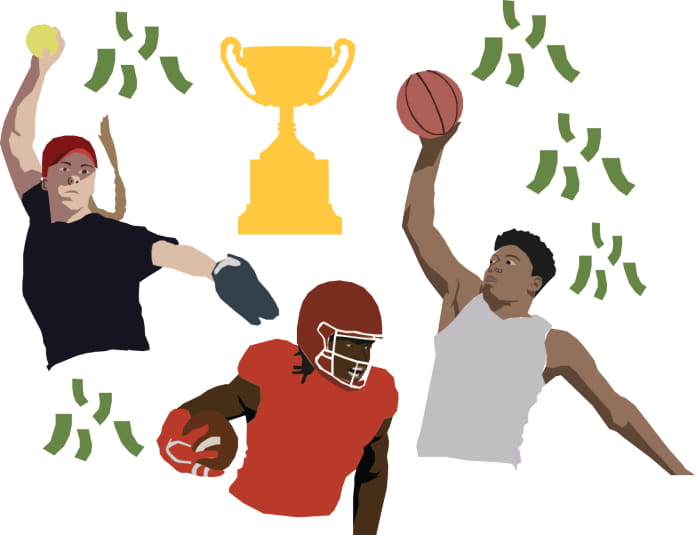Three college athletes compete for a trophy surrounded by loose cash. The NCAA has recently changed its rules surrounding player compensation. Illustration by Audrey Kennedy
While the National Collegiate Athletic Association is attempting to make college sports more fair, substantial regulation is needed.
On Oct. 29, the NCAA’s board of directors voted to eventually permit the compensation of college athletes for the use of their name, image and likeness. This was after California Gov. Gavin Newsom signed into law the “Fair Pay to Play Act,” which would’ve legalized this activity in the eyes of that state on Jan. 1, 2023.
While the NCAA’s move should be applauded by all parties involved, they must proceed with caution when implementing this change.
To be clear, the decision is not designed to force universities to give college athletes a salary. Rather, it simply allows for athletes to hire agents and gain monetary compensation. From January of 2021 onward, college athletes across the country will be able to partner with brands and pursue sponsorships without repercussions.
That said, while the spirit of the change is aligned with a deeply-rooted American value — the belief that all people should be adequately compensated for their labor — the NCAA risks starting a monetary arms-race.
Without proper supervision or regulation, college athletics might become less about sports and more about money. An unrestricted market could compel student-athletes to care more about how much they make during their four years at a college or university than their sport or education.
As such, limits should be imposed on how much a single college athlete can make from their name, image or likeness per year in order to ensure that things don’t spiral out of control.
Students should be drawn to collegiate sports based on passion, not out of greed or a desire to get rich. Some compensation is better than no compensation, and so the NCAA should be praised for their rule change. Excessive or extravagant compensation, however, can bring its own host of problems.
